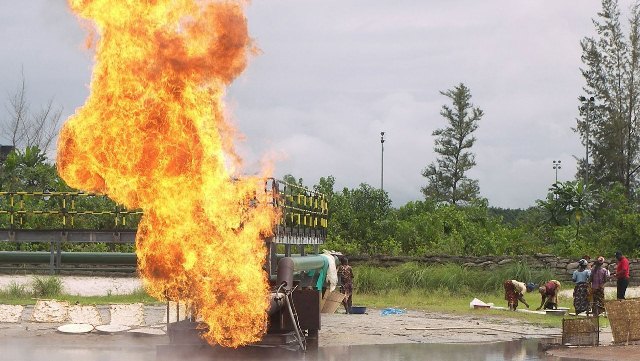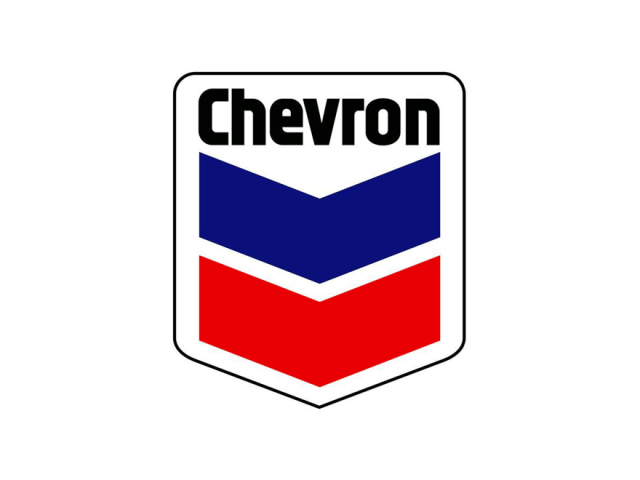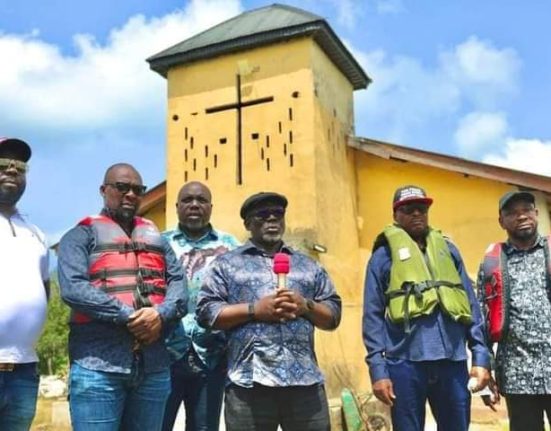Over the years, Nigeria has misled the world with its ineffective gas flaring prohibition bills and deadlines,ODIMEGWU ONWUMERE writes.
Nigeria has been flaring gas since the 1950s in the Niger Delta, where Co2 and several pollutants are emitted into the atmosphere at will by the multinational oil companies. In order to halt the illicit activity, in 2016, the Gas Flaring (Prohibition and Punishment) Bill was on the table of the Senate for consideration for possible channel into law. Checks revealed that among other things, the Bill was geared to prohibit gas flaring in any oil and gas production operation, blocks, field, onshore or offshore, and gas facility treatment plant in Nigeria. The source revealed that the Bill was formulated to relate all over Nigeria and by extension to the Exclusive Zone, Free Trade Zones, land in Nigeria, under the territorial waters of Nigeria, amongst others. In March, 2017, the Bill passed second reading at the Senate. By Wednesday, May 31, 2017, the Committee thereafter invited industry stakeholders and the general public to a public hearing.
Not even the increase in gas flare penalty to $2 per 1000scf by October 2, 2018 could deter the multinational oil companies in carrying out this reprehensible act of flaring gas. By January 31, 2018, the FG, through the then Minister of Finance, Kemi Adeosun accused oil companies of not paying stipulated gas flaring penalties, amounting to loss of revenue in billions of dollars into government coffers. Meanwhile, on November 2, 2018, report in major national newspapers in Nigeria but especially the Vanguard titled “Senate ready to pass gas flaring prohibition bill – Lawmaker” had the Chairman, Senate Committee on Gas, Sen. Bassey Albert as saying that the Senate would pass Gas Flaring Prohibition Bill before the end of that year. According to the source, “Sen. Bassey Albert, the Chairman, Senate Committee on Gas, on Thursday said that the Senate would pass the Gas Flaring Prohibition Bill before the end of the year.”
Can this statement be relied on as the many prohibition bills earlier put in place did not see the light of the day? While the lawmaker misled Nigerians with that conceited statement that never came to pass in that year, Bassey’s other statement of final stopping of gas flaring by 2020, can also, not be relied on given that authorities in Nigeria have had different deadlines in the past that later became a tall dream. In the subsequent lines that will follow revealed why such statement cannot be relied on. Meanwhile, this is what the report said of Bassey in ending gas flaring by 2020: “Albert expressed the National Assembly’s support for the 2020 final elimination of gas flare.”
#Misleading date to pass gas flaring prohibition bill
The declaration that the gas flaring prohibition bill would be passed before the end of 2018, did not hold in that year till April 17 2019, when the Senate passed the bill to prohibit gas flaring in Nigeria. On the ground to pass the Bill, the lawmakers had inter alia posited, “The bill seeks to ensure that natural gas shall not be flared or vented in any oil and gas production operation, block or field, onshore or onshore, or gas facility which shall commence operations after the commencement of the Act.”
Given the above, it’s a confirmation that the authorities in Nigeria are misleading the citizens (with their Bill to stop gas flaring) who are suffering the brunt of nitrogen dioxide, sulphur dioxide, volatile organic compounds, like benzene, toluene, xylene and hydrogen sulphide, as well as carcinogens, like benzapyrene and dioxin that are dangerous chemicals experts say are associated with gas flaring. These chemicals, according to sources, can cause cancer, blood leukemia and other dangerous ailments.
#Many Failed Propositions: Why Gas Flaring Has Not Been Stopped – According To Data
Oil and gas companies in Nigeria have not ended gas-flaring because they see zero per cent gas-flaring as a mirage, given the feeble approach government at all levels had exhibited in tackling the debacle as follows:
-
“Looking for a way to curb this menace, in 1969, General Yakubu Gowon as Head of State, allegedly allowed oil operators a five-year ultimatum within which to bring to a halt gas flaring, but never did.”
-
“The Supreme Court of Nigeria, in 2005, described oil-flaring as illegal, having formally banned it in 1984 and declared it “unconstitutional”. Yet, figures show that companies on the delta did not stop, but have only reduced to flaring 10 per cent since 2007.”
-
“Expectations by Nigerians were high, but dashed when the December 31st2012 deadline given to oil exploration companies, by the National Assembly, to end gas- flaring in all the oil fields in Nigeria, was not heeded.”
-
“But government apologists were either warning that why should there be what they termed “all the noise” about stopping gas flaring in the country, when, according to them, a country like Russia was pinnacling the rest of the world as the highest emitter, upon that she was ranked as a developed country.”
#Eye-service Approach…. Still On Data
-
“By Friday, March 25, 2011 the Federal Government had set agenda for ending gas-flaring, and unveiled what was regarded as “ambitious $10 billion gas revolution” and to create 500,000 direct and indirect jobs.”
The Federal Government made this disclosure during the formal launching of the Gas Revolution in the country. So they said, “it signed two Memoranda of Understanding (MOU): one, between Xenel and the Nigerian National Petroleum Corporation (NNPC), and the other among India’s Nagarjuna Fertilisers, NNPC and Chevron; as well as the award of the Akwa Ibom/Calabar area gas central processing facility (CPF), to Agip and Oando in Abuja – winners of the bid.”
As part of its efforts in ending this illegality of gas flaring, media reports of November 1, 2012 believed that the Federal Government might shut oil fields, even if it meant a loss of revenue. A director at the Department of Petroleum Resources, Mr Osten Olorunsola, apparently said then: “One of the things we are doing is to do some analysis for government, to such an extent that it will even mean a proposal to shut down fields to avert huge gas-flaring. We will probably make that position known to government very soon.”
According to a report in the newspapers on Monday, March 4, 2013, the then Minister of Petroleum Resources, Mrs. Diezani Alison-Madueke had said that the country had a “new target” which was not to bring a total end to gas-flaring, but to meet 22 per cent of gas-flaring reduction by 2017, which was characterised as “on the short-term.” This statement came when a report by the World Bank showed that gas-flaring continued much to aid climate change, among major oil countries.
#Nigeria, Not A Serious Country In Ending Gas Flaring
By December 6, 2017, the Federal Government discovered 178 gas flare sites across Nigeria. According to data, this was against the general speculation of 140 sites. The outcome might not have been made public if not with the efforts of the World Bank, United States Agency for International Development, USAID, and the Canadian government.
A Programme Coordinator of the Nigerian Gas Flare Commercialization Programme in the Ministry of Petroleum Resources in that year, Mr. Justice Derefaka bared his mind in Abuja, at the Gas Buyers’ Forum, organized by the Gas Aggregation Company of Nigeria, stating that at least, the government had received 60 per cent data of survey on gas flaring sites.
Gowon had pointed out in 2011, how Nigeria had lost her leading role in Liquefied Natural Gas production to countries such as Qatar and Australia. “Last year, this country flared over 460 billion standard cubic feet of gas that, if processed and exported, would have fetched the country over $2 billion and minimised the health and environmental impact of gas flares,” Gowon had said.
This claim had the support of a Bureau of Public Enterprises’ study, which estimated Nigeria’s losses to gas flaring at between $500 million and $2.5 billion a year. Gowon noted, “Think of how the oil palm industry left Nigeria for Malaysia. Think of how athletics – we won gold in Sydney (Australia) in 2000 – left Nigeria for Jamaica. And, worst of all, countries we started out with in the LNG business have all left us behind.”
In the period under review, while Qatar’s production had moved from 20 million tonnes to the range of 80 million tonnes and Australia was also targeting 80 million tonnes, Gowon seemingly maintained, Nigeria’s progress was stymied: “All the LNG projects on the drawing board in Nigeria – LNG Train Seven – will only add 30 million tonnes to our national output, which is not that much when compared to Australia, which has only 60 per cent of our reserves.”
Nevertheless, report of May 1 2017, said, “Nigeria loses $850m, 3,500MW of electricity to gas flaring.” By February 12, 2019, the FG was accused of failing to show the necessary commitment needed to end gas flaring in the Nigerian petroleum industry.
According to data, “This was the view of former Chairman of the Nigerian Electricity Regulatory Commission, NERC, Mr. Ransome Owan and other experts at the just concluded Nigeria International Petroleum Summit, NIPS, in Abuja.
The Nigerian National Petroleum Corporation, NNPC, also agreed that there is lack of commitment, but exonerated the Federal Government, while it indicted domestic gas buyers, especially the power sector for the slowdown in deepening gas utilisation in the country.”
#Conclusion: When Will Gas Flaring End In Nigeria?
On November 17, 2016, a Harrison Declan who said he’s a lawyer and Editor, Energy Law Review, from Lagos, published an article titled “What Gas Flaring Prohibition bill will achieve.” Declan pointed out the following in his treatise:
-
It is worthy of note that this is not the first attempt to legislate on gas flaring in Nigeria. In 1979, the Associated Gas Re-injection Act was enacted. The Act, in the main, prohibited gas flaring and fixed the flare-out deadline for January 1, 1984.
-
This was not to be, as the deadline was subsequently moved to December 2003, then to 2006, to January 2008 and then December 2008. Also, on July 2, 2009, the Senate passed the Gas Flaring (Prohibition and Punishment) Bill 2009 (SB. 126) into law, which fixed the flare-out deadline for December 31, 2010.
-
The Petroleum Industry Bill fixed it for 2012. The Gas Flaring (Prohibition and Punishment) Bill 2016, which is, in many respects, a reproduction of the 2009 bill, has also fixed the flare-out deadline for December 2016…
-
Finally, while we had hoped for a single piece of legislation for the Nigerian petroleum industry, the lawmakers seem to be thinking differently. First it was the Petroleum Industry Governance Bill, and now the Gas Flaring (Prohibition and Punishment) Bill. In the end, whatever legislative approach is deemed most suitable is welcomed, provided there are effective mechanisms for enforcing the legislation, because in the end, the efficiency of laws is determined not from their content but from their enforceability.
Odimegwu Onwumere writes from Rivers State. Email: apoet_25@yahoo.com
Support Quality Journalism in the Niger Delta Region
Join us in our mission to bring development journalism, cultural preservation, and environmental awareness to the forefront. Your contribution makes a difference in the lives of the people of the Niger Delta. Donate today and be a part of the change!








